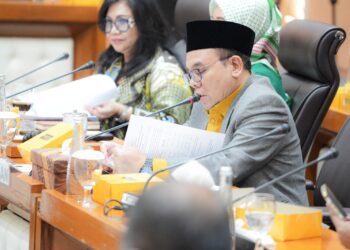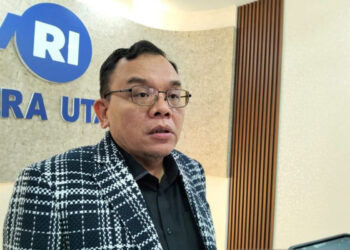Siti Aisah said that she frequently felt tired and suffered from stomach aches. But the 33-year-old housewife was shocked to hear that she was suffering from kidney failure.
The mother of two from Bogor, West Java, said that she had been pessimistic about her chances of surviving, since she was too poor to pay for regular treatment.
“My husband works as construction worker and earns no more than Rp 200,000 [US$15.30] a week. All the money usually goes for food and there’s nothing left to pay for my medication,” Siti told The Jakarta Post recently.
Siti, however, can breathe a sigh of relief after the Bogor-based Rumah Sehat Terpadu (RST) hospital deemed her eligible for free treatment. RST’s operations are funded in part by zakat, compulsory alms adult Muslims pay if their income exceeds a certain amount.
For the past few months, Siti has been visiting RST, which was established in 2012 by independent alms agency Dompet Dhuafa (Wallet of the Poor).
At least twice a week, Siti undergoes hemodialysis, a service that normally costs non-subsidized patients around Rp 700,000 per five-hour session.
“They have not charged me a single rupiah for medicine or other inpatient services,” Siti said.
According to a 2011 study by the government-sanctioned National Alms Agency (Baznas), the Bogor Institute of Agriculture (IPB) and the Islamic Development Bank (IDB), Indonesia, the world’s largest Muslim-majority country, could potentially collect up to Rp 217 trillion in zakat a year.
Although that amount is equivalent to 15.4 percent of this year’s Rp 1.76 quadrillion state budget, local alms agencies last year collected only Rp 3.2 trillion, or 1.5 percent of the estimate.
However, Baznas says that the funds collected as zakat have increased by about 20 percent a year over the last 12 years.
Looking at such a huge potential amount, alms-management organizations want to promote zakat as an alternative to helping the government expand social safety-net programs, such as the national health insurance (JKN) program managed by the Healthcare and Social Security Agency (BPJS Kesehatan).
Although the government has so far covered monthly premiums of Rp 19,225 a person for 86.4 million poor people under the JKN program, administrative glitches have left 11 million uninsured and uncovered by the BPJS.
Last year, BPJS director Fahmi Idris said that the agency would work with alms-management agencies to cover premiums for uninsured citizens by letting the agencies validate their identity and eligibility to become zakat beneficiaries.
In a recent interview, RST medical services director Kukun Masykur Nikmat said Dompet Dhuafa had registered more than 1,400 poor people for the JKN program, covering monthly premiums with zakat funds.
“By registering them as BPJS members, we expect that these poor people will be able to visit the nearest BPJS providers and save money for transportation,” he said.
Kukun, however, said that RST, which currently offers 100 hospital beds, would always be open to the poor, whether it was covered by the JKN or not.
“Even if this hospital grows larger and provides paid medical services for the general public, it must continue to provide free services for poor patients,” Kukun said, adding that the hospital had spent Rp 35 billion to finance its operations last year.

Since its inception in 1993 until 2013, Dompet Dhuafa collected Rp 124.3 billion in zakat, making it one of the country’s largest independent alms agencies.
Separately, Rumah Zakat (RZ) CEO Nur Effendi said his agency was currently registering dozens of its zakat-funded health service centers in nine cities as BPJS providers.
“Once registered as BPJS providers, the centers will be able to help the poor register as BPJS members much more easily, while continuing to provide free medical assistance for those who are still uninsured,” Nur said, adding that RZ had disbursed Rp 8.5 billion last year to finance the centers’ operation.
Baznas executive director Teten Kustiawan, meanwhile, said that four agency health centers in Jakarta, Makassar in South Sulawesi, Sidoarjo in East Java and Yogyakarta needed up to Rp 1 billion a month for programs aimed at the poor and uninsured.
Looking at the rapid growth of zakat collections in recent years, Teten said that Baznas, which supervises national zakat management, expects that alms will be formalized as alternative financing for government projects in economic development, education, public health, religion and welfare.
“The government, for instance, can include zakat funds as a non-state-budget source in the National Mid-term Development Plan [RPJMN] so that alms agencies are allowed to contribute by financing or managing certain development programs whose details are planned by the government,” he said, citing the now-defunct Mandiri National Community Empowerment Program (PNPM Mandiri) and the ongoing JKN program as examples.
Launched in 2014, the JKN program, however, started to show signs of financial trouble when BPJS Kesehatan said that it collected less in premiums than it incurred in hospital fees in December.

Separately, National Mandate Party (PAN) lawmaker Saleh Partaonan Daulay said he supported the use of zakat to fund government programs, such as the JKN.
However, Saleh, who chairs House of Representatives Commission VIII overseeing religious and social affairs, urged Baznas to first reorganize the management of national zakat collection and distribution to ensure financial transparency — and to prevent alms agencies from introducing overlapping programs.
“Baznas must make sure that all registered alms agencies are able to declare, for example, where the zakat funds they collect come from, to whom they channel the funds, and how much the agencies take from the funds [for management],” Saleh said.
IPB Islamic economic expert Irfan Syauqi Beik echoed Saleh, saying that immediate reorganization would significantly reduce inefficiency in zakat collection and distribution.
“Baznas, for instance, now has the authority to request that registered alms foundations spread their charity programs to the areas where no or only a small number of zakat-funded programs exist,” he said.
“This will not only force the agencies to expand their operation but also prevent them from continuously competing with each other in certain regions.”**
Source: thejakartapost.com












